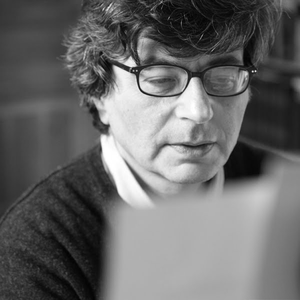
| Trackimage | Playbut | Trackname | Playbut | Trackname |
|---|---|---|---|---|
| 84380608 | Play | Between Two Waves | 00:00 Tools | |
| 84380609 | Play | Aria from Goldberg Variations, BWV 988 | 00:00 Tools | |
| 84380610 | Play | Barcarola | 00:00 Tools | |
| 88624426 | Play | Zerkalo | 00:00 Tools | |
| 84380611 | Play | Duo | 00:00 Tools | |
| 84380612 | Play | Zerkalo (The Mirror) | 00:00 Tools | |
| 84380613 | Play | Duo (After Osip Mandelstam) | 00:00 Tools | |
| 84380614 | Play | Bach: Goldberg Variations, BWV 988 - 1. Aria | 00:00 Tools | |
| 90305758 | Play | Aria From Goldberg Variations BWV 988 | 00:00 Tools |

-
- 754
- plays
-
- 255
- listners
-
- 754
- top track count
Victor Kissine (15.March.1953) was born in Saint Petersburg (when it was still called Leningrad). In 1972 he began to study composition and musicology (with M. Druskin) at the Rimsky-Korsakov Conservatory. His education (which included a course of graduate studies) lasted for 10 years. In the last decade of the Soviet epoch he composed an opera, Marat-Sade (based on the play by Peter Weiss), which in 1985 caused a scandal on the occasion of its first performance in Leningrad. At this time Kissine also wrote numerous film soundtracks, some of which won awards at film festivals in Berlin, Venice and Madrid. Kissine has lived in Belgium since 1990, where he teaches instrumentation and music analysis at the Conservatoire Royal de Mons as well as at the Institut National Supérieur des Arts du Spectacle in Brussels. In May 2008 Kissine was elected member of the Académie Royale des Sciences, Lettres et Beaux-Arts de Belgique. As a composer he initially concentrated on chamber music. In 1995 Kissine was awarded a first prize by the Tokyo Irino Foundation for one of the first works of this period, the string quartet Passe la nuit (1992). There followed a Piano Trio (1993), a Sonata for violoncello and piano (1995), Miroir for bass flute, violoncello and strings (1996), the octet Butterfly (1997), a Duo for viola and violoncello (1998), the Impromptu for violin and piano (1998), and the Partita for piano, harp and strings (1998). Kissine has received commissions from the Concertgebouw in Amsterdam, the Lincoln Center, the San Francisco Symphony Orchestra, and from Gidon Kremer and his ensemble Kremerata Baltica. Since 2000 Kissine has begun to compose for larger combinations of instruments. These works include Between two waves, a concerto for piano and strings (2006), Aftersight, a violin concerto (2005/2007), Smiles on the Night for unaccompanied double chorus (2006), and Barcarola for solo violin, strings and percussion (2007). The well-known Belgian music journalist Frans C. Lemaire has had this to say about Kissine’s music: “Many experiences and emotions – friendship, admiration and affinity – lie beneath the surface of this reticent musical language, which prefers soft murmurings to loud pronouncements, and closely restricts the development of the melodic material. Thus, especially in the case of trills, it makes frequent use of quarter-tones and subsequently breaks free in fleeting glissandos. This music from the end of the 20th century does not celebrate vain and noisy human activity, but seeks to recapture a kind of lost harmony which – far removed from the real world – is borne up by the mysterious voices of silence.“ Read more on Last.fm. User-contributed text is available under the Creative Commons By-SA License; additional terms may apply.